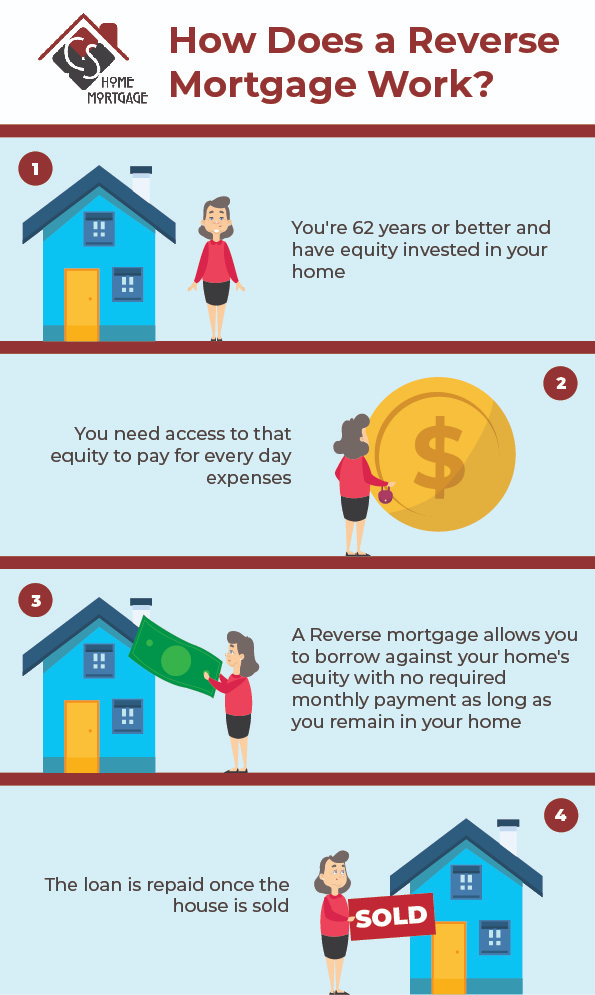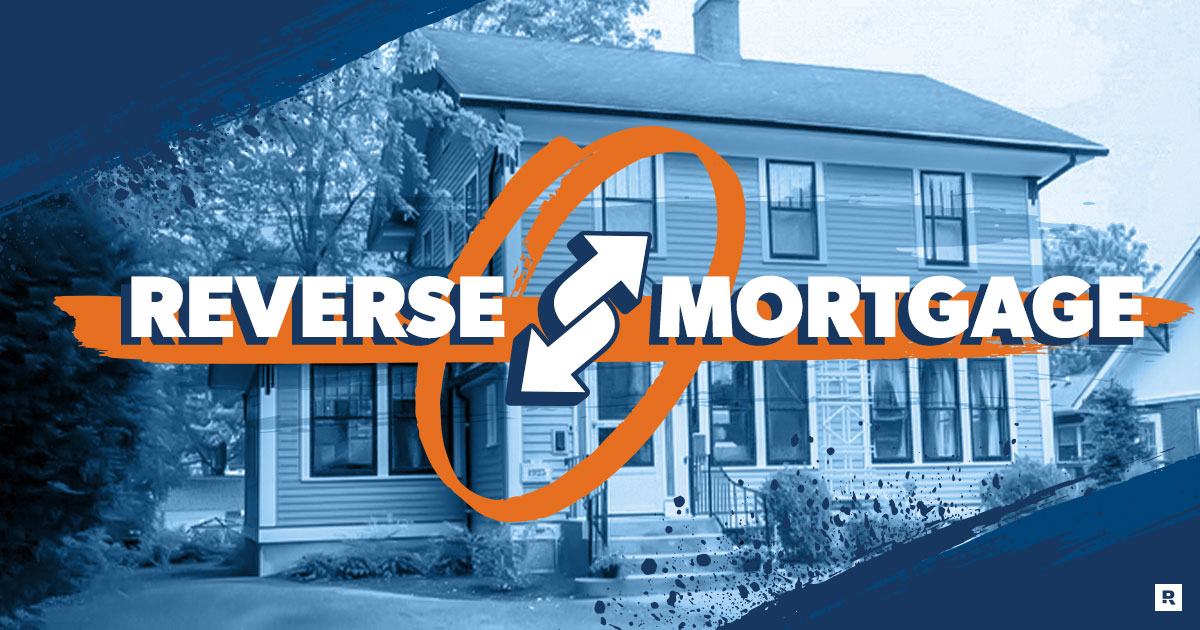Unlock Financial Freedom: Your Overview to Buying a Reverse Mortgage
Recognizing the intricacies of reverse mortgages is essential for home owners aged 62 and older looking for monetary flexibility. This one-of-a-kind financial tool makes it possible for elders to take advantage of their home equity, transforming it into accessible cash money for different demands, from medical care to way of living enhancements. Navigating the eligibility prices, advantages, and criteria can be complex. As you consider this choice, it is important to grasp not just just how it works but additionally the ramifications it might have on your financial future. What are the vital aspects you should evaluate prior to making such an impactful choice?
What Is a Reverse Home Mortgage?

The essential charm of a reverse home loan depends on its potential to improve monetary flexibility throughout retired life. House owners can use the funds for numerous purposes, consisting of medical expenses, home renovations, or daily living costs, thus offering a safety and security internet during a crucial stage of life.
It is necessary to recognize that while a reverse mortgage enables boosted money flow, it additionally reduces the equity in the home over time. As rate of interest builds up on the exceptional financing balance, it is important for prospective consumers to carefully consider their long-term economic strategies. Consulting with a reverse home loan or a financial consultant expert can offer useful insights right into whether this alternative straightens with a person's financial goals and conditions.
Eligibility Needs
Recognizing the eligibility requirements for a reverse home loan is vital for home owners considering this financial alternative. To certify, applicants should be at the very least 62 years old, as this age requirement enables senior citizens to gain access to home equity without month-to-month home loan repayments. In addition, the homeowner has to inhabit the house as their key residence, which can include single-family homes, particular condominiums, and made homes fulfilling certain standards.
Equity in the home is an additional necessary requirement; property owners normally need to have a substantial amount of equity, which can be identified via an appraisal. The quantity of equity offered will directly influence the reverse home loan quantity. Applicants have to show the capacity to preserve the home, including covering residential or commercial property taxes, home owners insurance, and maintenance prices, ensuring the residential property continues to be in good problem.
Additionally, potential borrowers need to undergo an economic analysis to evaluate their income, credit rating, and total financial circumstance. This evaluation assists lenders determine the applicant's capability to fulfill continuous commitments related to the home. Satisfying these requirements is critical for securing a reverse home loan and making certain a smooth financial change.
Benefits of Reverse Mortgages
Countless benefits make reverse home mortgages an attractive alternative for elders looking to improve their financial versatility. purchase reverse mortgage. Among the primary advantages is the capability to transform home equity right into money without the requirement for month-to-month mortgage settlements. This attribute allows senior citizens to gain access to funds for different demands, such as medical expenses, home enhancements, or daily living prices, thus easing monetary anxiety
In addition, reverse home mortgages supply a safeguard; senior citizens can proceed to live in their homes for as long as they satisfy the car loan needs, cultivating security during retirement. The profits from a reverse home mortgage can likewise be made use of to postpone Social Protection benefits, possibly causing higher payouts later.
Furthermore, reverse home look here mortgages are non-recourse car loans, meaning that borrowers will never ever owe greater than the home's worth at the time of sale, safeguarding them and their heirs from monetary obligation. Lastly, the funds obtained from a reverse mortgage are generally tax-free, including one more layer of monetary relief. On the whole, these advantages placement reverse home loans as a functional service for seniors looking for to improve their monetary situation while keeping their valued home setting.

Prices and Costs Involved
When considering a reverse home loan, it's necessary to be mindful of the numerous prices and charges that can influence the total monetary picture. Recognizing these costs is vital for making a notified decision concerning whether this financial item is ideal for you.
One of the key costs connected with a reverse home mortgage is the source charge, which can differ by lending institution however generally varies from 0.5% to 2% of the home's appraised value. In addition, homeowners ought to expect closing costs, which may consist of title insurance policy, evaluation costs, and credit rating record charges, typically totaling up to numerous thousand dollars.
One more significant cost is home loan insurance costs (MIP), which protect the loan provider against losses. This cost is usually 2% of the home's value at closing, with an ongoing annual premium of 0.5% of the remaining car loan equilibrium.
Lastly, it is very important to consider recurring expenses, such as residential or commercial property tax obligations, property owner's insurance policy, and maintenance, as the debtor stays in charge of these expenses. By carefully reviewing these fees and prices, homeowners can much better assess the economic implications of going after a reverse home loan.
Steps to Get Going
Getting started with a reverse home mortgage entails numerous vital actions that can assist simplify the process and ensure you make educated choices. Examine your economic circumstance and establish if a reverse mortgage lines up with your long-term objectives. This includes reviewing your home equity, existing financial obligations, and the need for extra revenue.
Next, research various loan providers and their offerings. Seek trustworthy establishments with positive reviews, transparent charge structures, and competitive interest prices. It's vital to contrast conditions to locate the very best suitable for your requirements.
After selecting a lending institution, you'll require to complete an in-depth application process, which commonly requires documents of income, assets, and property information. Involve in a counseling session with a HUD-approved counselor, who will certainly provide insights right into the ramifications and duties of a reverse home loan.
Verdict
To conclude, reverse home mortgages provide a sensible choice for senior citizens looking for to boost their monetary security basics during retired life. By converting home equity right into obtainable funds, home owners aged 62 and older can deal with various monetary demands without the stress of month-to-month payments. Understanding the details of qualification, advantages, and linked expenses is essential for making informed choices. Careful factor to consider and planning can cause enhanced lifestyle, making certain that retired life years are both protected and fulfilling.
Understanding the details of reverse mortgages is essential for home owners aged 62 and older seeking economic freedom.A reverse home mortgage is home a financial item developed mainly for home owners aged 62 and older, allowing them to transform a part of their home equity into cash money - purchase reverse mortgage. Consulting with an economic advisor or a reverse home mortgage professional can supply useful insights right into whether this option straightens with an individual's economic goals and scenarios
In addition, reverse mortgages are non-recourse loans, implying that consumers will certainly never ever owe more than the home's value at the time of sale, protecting them and their beneficiaries from monetary responsibility. Overall, these benefits placement reverse mortgages as a useful solution for elders seeking to boost their economic situation while preserving their treasured home setting.